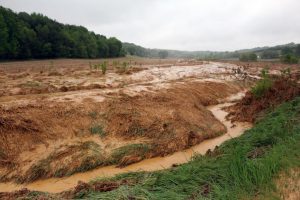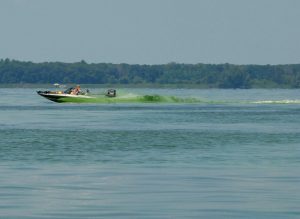Water Quality
WGF analyses concerning water quality standards, methods of evaluating water quality, and regulation to protect water quality in Wisconsin’s lakes, rivers, and streams. Also see the Agriculture category for analyses of nonpoint sources of pollutants. This work is developed by WGF’s Water Resources and Environmental Rules Work Group.
WGF Comments on WDNR Draft Guidance 2018-2020 Triennial Standards Review Priorities for Water Quality Standards
Wisconsin’s Triennial Review process identifies its 3 year plan for keeping its water quality standards consistent with current science. This document identified 5 priorities for future work including:
Read More >
Wisconsin River success story
Wisconsin’s Green Fire Board member Bob Martini gives many presentations around the state about the era (1968-2010) when the Department of Natural Resources provided evidence-based science to help reconcile our state’s industries and our environment. That effort contributed to the quality of our lives today.
The DNR provided science-based management information to policy makers, the public, …
Read More >Toxic Levels of Copper Found in Creek Days After Frac Sand Mine Spill
DNR: Overall Metal Concentrations Down In Latest Tests From Trempealeau River
A creek inundated with 10 million gallons of water from a Trempealeau County frac sand mine had toxic levels of copper two days after the spill, according to test results released this week by the Wisconsin Department of Natural Resources.
The test results from the DNR also …
Read More >What ‘impaired’ means in Wisconsin waters
All around Wisconsin, people are feeding a stinky, green and oftentimes toxic life form. Algal blooms are a regular occurrence on Wisconsin’s lakes during the summer, and the microorganisms that comprise them need phosphorus to thrive. It’s among the essential building blocks of life, but too much phosphorus can throw an …
Read More >Wisconsin’s Long History: Manage Lakes with Science
By Bob Martini, Wisconsin’s Green Fire board member
Photo: Allequash Lake, Joshua Mayer
For decades Wisconsin’s lakes have been well managed by a partnership of
landowners, the Department of Natural Resources, county officials, the University of Wisconsin-Extension, various lake organizations, and private consultants.
This system was based on the best available science and had largely bipartisan
support from legislatures and …





